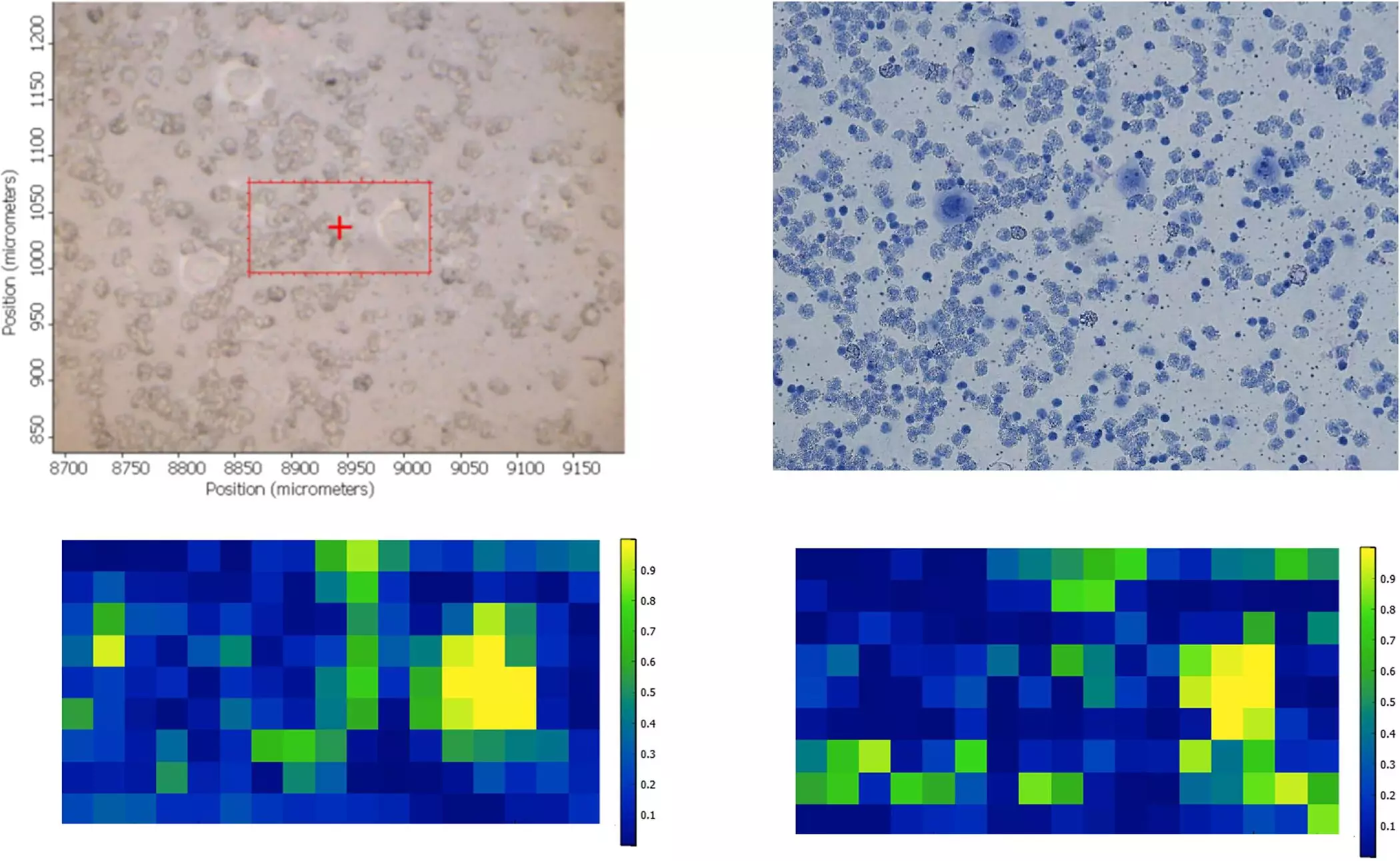In a groundbreaking study spearheaded by Professor Josep Sulé-Suso from Keele University, a new method for identifying a single cancer cell in a blood sample has been unveiled. This discovery has the potential to revolutionize cancer treatment by enabling more personalized and targeted therapies for individuals battling this disease.
The research team, comprised of academics from Keele University, the Cancer center at University Hospitals North Midlands NHS Trust, and Loughborough University, employed Fourier Transform Infrared (FTIR) microspectroscopy technique to analyze the biochemical composition of cells using infrared light. Their findings, recently published in the journal PLOS One, have demonstrated the efficacy of FTIR microspectroscopy in conjunction with a machine learning algorithm to detect a single lung cancer cell in a blood sample.
By isolating individual tumor cells circulating in the bloodstream, this innovative technique enhances the efficiency of cancer screening, staging, treatment response evaluation, and follow-up procedures. This breakthrough allows for a more tailored and precise approach to cancer management, aligning treatments with the specific needs and cancer type of each patient. Professor Sule-Suso and his team believe that this development could significantly advance the field of personalized medicine, providing a more robust method for detecting cancer cells compared to current practices.
Professor Sule-Suso emphasized the transformative potential of identifying cancer cells in blood using this state-of-the-art technique, describing it as a potential game-changer in cancer patient care. The team has received approval to expand their research to include samples from patients with various types of cancer, beyond just lung cancer, to ascertain the versatility and efficacy of this method in detecting different cancer types.
Director of Research and Innovation at University Hospitals of North Midlands NHS Trust, Professor Kamaraj Karunanithi, expressed enthusiasm for the research targeting early cancer cell detection in the bloodstream. Detecting the spread of cancer at an early stage is crucial for enhancing patient care and treatment outcomes. This research endeavor has the capacity to set new benchmarks in cancer treatment across different stages of the disease.
The identification of single cancer cells in blood samples marks a significant advancement in the field of oncology, offering new possibilities for personalized cancer treatment and management. This pioneering research holds promise for improving patient outcomes and streamlining cancer care pathways. The future implications of this breakthrough are vast, opening doors to a more targeted, efficient, and effective approach to combating cancer.

